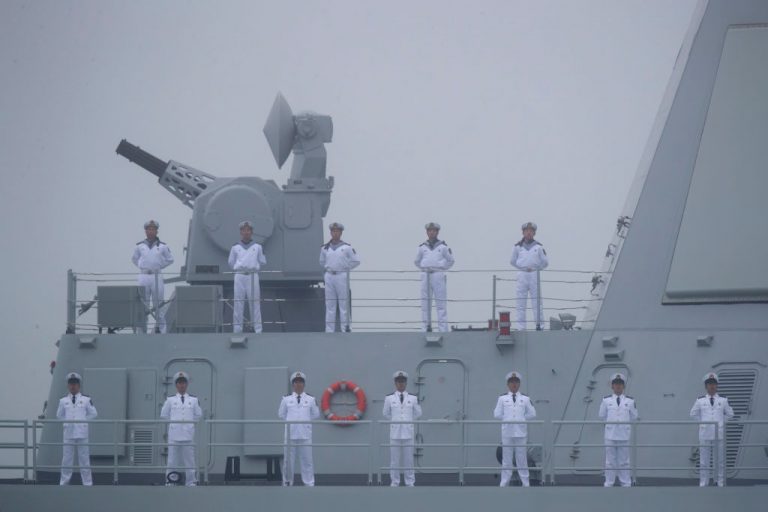A report from a classified American intelligence source told The Wall Street Journal on Dec. 6 that China’s People’s Liberation Army Navy (PLAN) is scoping the Central African country of Equatorial Guinea to establish its first permanent military presence on the Atlantic Ocean.
The report said the base would be a massive facility capable of rearming and refitting warships. It also revealed that discussions were being held with the government of Tanzania for the establishment of its first naval base in Africa. The Chinese government has said it is aiming to bolster diplomatic relations with African nations and hopes to expand its military presence in the Horn of Africa.
China’s military base in Africa, if granted permission, would be the PLA’s second installation in Africa, after a US$590 million facility it currently operates in Djibouti. That base gives the PLAN valuable access to the Gulf of Aden and the Suez Canal. Approximately 30 percent of the world’s seaborne petroleum and natural gas pass through these vital waterways everyday.
Beijing has stressed the importance of Djibouti’s geographic location as it is pivotal in gaining an upper hand on global shipping lanes and due to its close proximity to key nations in both Africa and Asia.
Strategic access
According to the U.S. Energy Information Administration, these sea lanes are extremely critical to global energy security and transportation. Any maritime threat in the Bab el-Mandeb Strait could divert the globe’s tanker traffic from two 2-mile-wide channels around the tip of Africa, causing massive blockages like what was seen in the Suez Canal in March, when a 1300 ft container ship became wedged in the canal’s waterway.
The latest move from Beijing has sparked security concerns for the U.S. navy, placing Washington on high alert. Top commander of the US Africa Command (AFRICOM) General Stephen Townsend told The Associated Press in an interview that the “Chinese naval base on Africa’s Atlantic coast concerns me greatly,” stating that the suspected port would be so sizable that it would be capable of storing aircraft carriers and even submarines within its base.
Success
You are now signed up for our newsletter
Success
Check your email to complete sign up
The Chinese government has also approached several other African nations from Mauritania to the south of Namibia, with the intent of establishing naval facilities to base warships in both the Atlantic and Pacific oceans. Its first military base in Djibouti, was set up less than 10 miles from Camp Lemonnier, the largest U.S. defense base in Africa. It was also the first strategically located facility that hosted attack helicopters and armored combat vehicles.
Townsend suggested that Djiboutian President Ismail Omar Guelleh may have agreed to Beijing’s 2017 Djibouti establishment because of “debt-trap diplomacy,” and said the base could now be “turning into a platform to project power across the continent and its waters in order to grow its military footprint.”
But China hasn’t stopped its expansion efforts. The PLAN has been persistently looking for other basing opportunities [around Africa] for a “strategic strongpoint,” hoping to conduct anti-piracy operations in the Red Sea, the Gulf of Aden, and the 18-mile wide Bab-el-Mandeb or “Gate of Tears,” a strait between Yemen and the Arabian Peninsula.
According to the Chinese government, the Doraleh Multipurpose Port in Djibouti is within the International Free Trade Zone, and was set up on the pretense of ramping up “Chinese peacekeeping efforts, anti-piracy missions, and maintaining peace and stability in Africa.”
In November, Chinese President Xi Jinping kicked off a week-long China-Africa Peace and Security Forum with African defense ministers and military chiefs. The virtual conference was reportedly to facilitate a dialogue on cooperation, peace, and security funding in the Horn of Africa.
Chinese Foreign Ministry spokesman Zhao Lijian said during a daily briefing on Nov. 30 that Beijing’s presence in Africa “features sincere friendship and equality” and “is a win-win for mutual benefit and common development” in line with the Communist Party’s vision of a “community of shared future for mankind.”














